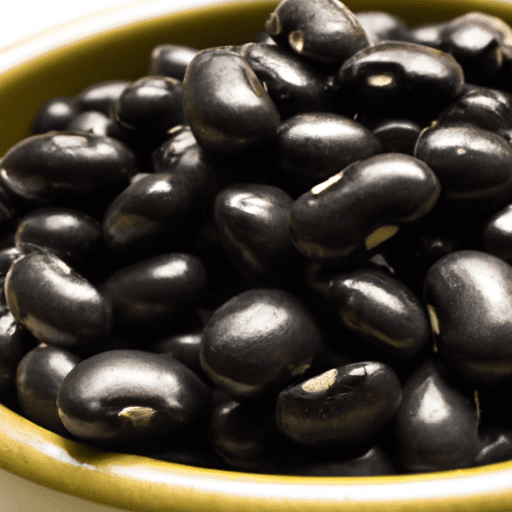All About Canned Black Beans: A Delicious and Nutritious Pantry Staple
Are you looking for an easy, versatile, and nutritious ingredient to keep in your pantry? Look no further than canned black beans! These little powerhouses are not only delicious but also offer a wide range of culinary possibilities. In this blog post, we will delve into the world of canned black beans, exploring their taste, common uses in cooking, nutritional value, and some interesting facts about these humble legumes.
Taste and Texture
Canned black beans have a hearty, rich taste with a slightly creamy texture. They offer a unique combination of earthiness and mild sweetness, making them a perfect addition to a variety of dishes. The canning process enhances their flavor, resulting in a well-rounded taste that blends effortlessly with other ingredients.
Cooking Uses
One of the greatest advantages of canned black beans is their convenience. Unlike dried beans, they are already cooked and ready to use straight out of the can. This saves you precious time in the kitchen, allowing for quick and easy meal preparation.
Canned black beans are incredibly versatile and can be incorporated into various dishes. They are a staple in Latin American, Caribbean, and Tex-Mex cuisines, offering a distinct flavor to classics like black bean soup, burritos, and rice and beans. However, their uses extend far beyond these traditional dishes.
You can add canned black beans to salads, transforming them into a protein-packed main course. They also make a great addition to hearty stews, chili, or even veggie burgers. For a quick and healthy snack, mash them and spread them on toast or use them as a flavorful dip for tortilla chips. The possibilities are truly endless!
Nutritional Benefits
In addition to their delicious taste and culinary versatility, canned black beans are highly nutritious. They are a fantastic source of plant-based protein, making them an excellent option for vegetarians and vegans. A ½ cup serving of black beans contains about 8 grams of protein, helping to keep you feeling satisfied and energized.
Black beans are also an excellent source of dietary fiber, with a ½ cup serving providing approximately 8 grams. The high fiber content aids in digestion, promotes a healthy digestive system, and can contribute to a feeling of fullness, which can be beneficial for weight management.
Furthermore, canned black beans are rich in essential minerals such as iron, magnesium, and folate. These nutrients play a crucial role in maintaining overall health and well-being. Black beans are also low in fat and naturally cholesterol-free, making them a healthy addition to any diet.
Interesting Facts
Did you know that black beans have a fascinating history? They have been cultivated for over 7,000 years and are believed to be native to the Americas. Black beans were an essential crop for various Indigenous cultures, including the Mayans and Aztecs.
Black beans were so highly valued in ancient times that they were often used as a form of currency. They were praised for their taste, long shelf life, and nutritional benefits. Today, they remain a cherished ingredient in many Latin American and Caribbean cuisines, as well as popular worldwide.
Conclusion
Canned black beans are a must-have pantry staple that can bring a burst of flavor and nutrition to your meals. With their hearty taste, versatility, and wealth of health benefits, they are a game-changer for home cooks looking to create delicious and nutritious dishes in no time. Whether you’re looking to enhance stews, salads, or create vibrant Mexican-inspired meals, canned black beans are an essential ingredient to have on hand. So why not stock up and get creative in the kitchen? Your taste buds and your body will thank you!
Note: When purchasing canned black beans, be sure to check the label for added sodium and choose options with reduced or no salt if you prefer.
Origin: Canned black beans are derived from the common bean, scientifically known as Phaseolus vulgaris, which is native to the Americas. Specific to black beans, their cultivation is believed to have originated in Central and South America, particularly in Peru and Mexico.
Common Uses: Canned black beans are versatile and commonly used in various cuisines worldwide. They can be enjoyed on their own as a side dish or incorporated into a wide range of recipes. Some common uses include soups, stews, salads, chilis, dips, and as a filling for tacos, burritos, or enchiladas.
Nutritional Benefits: Black beans are renowned for their nutritional profile. They are an excellent source of plant-based protein, dietary fiber, and complex carbohydrates. They also provide essential minerals such as iron, magnesium, and folate, and are a good source of antioxidants. Additionally, black beans are low in fat and contain no cholesterol.
Unique Properties: One unique property of black beans is their high anthocyanin content. Anthocyanins are a type of pigment that give foods, including black beans, their dark color. These pigments have been studied for their potential antioxidant and anti-inflammatory properties. Black beans are one of the best sources of anthocyanins among common beans.
Historical Significance: Black beans have been an important staple in Latin American cuisine for centuries. They hold cultural significance in dishes like feijoada in Brazil, gallo pinto in Costa Rica, and moros y cristianos in Cuba. During the trans-Atlantic slave trade, black beans were introduced to various parts of the world, where they became an integral part of the culinary traditions in Africa, the Caribbean, and beyond, further showcasing their historical significance.




Use the share button below if you liked it.
It makes me smile, when I see it.